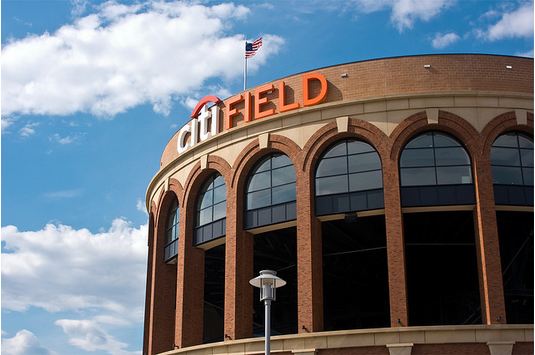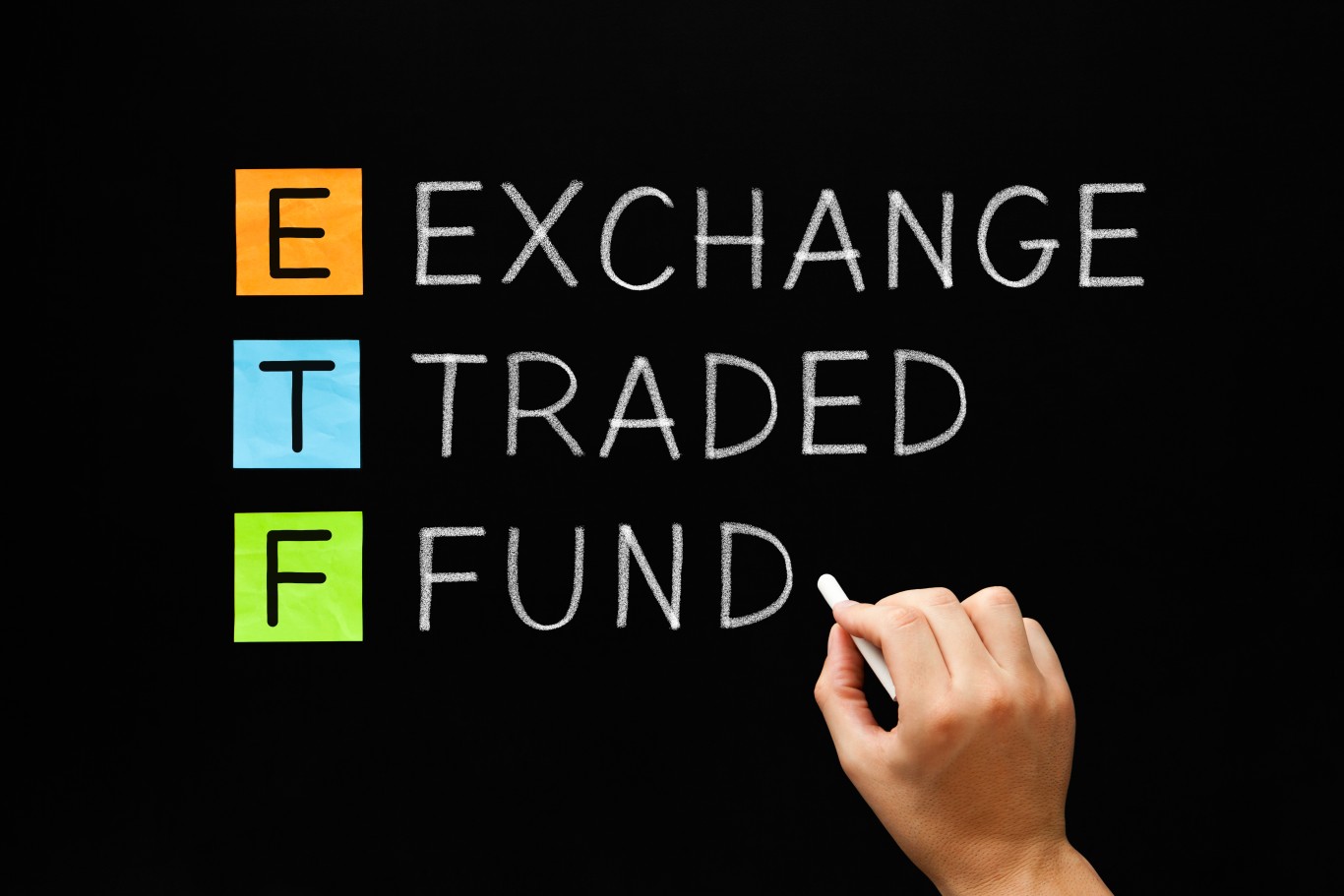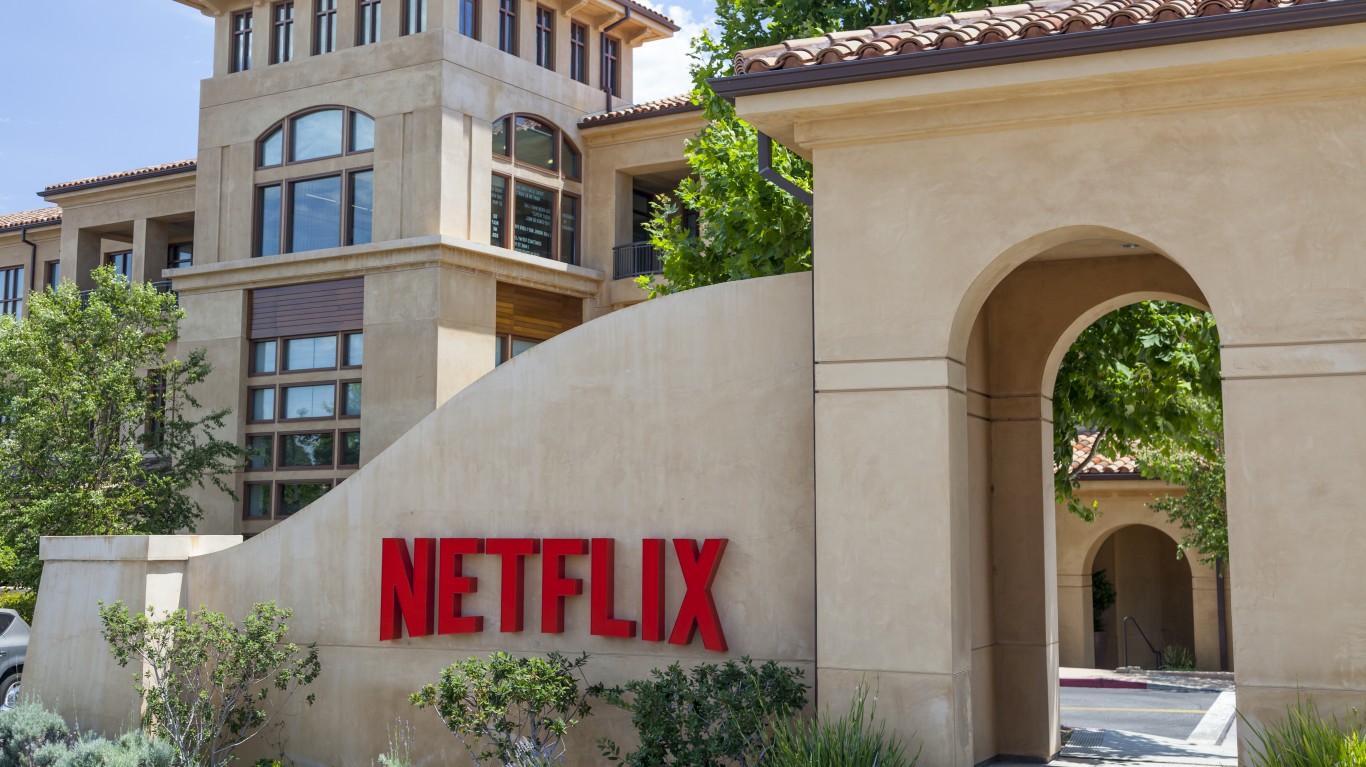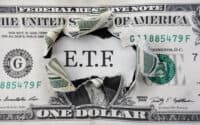 Corporations can spend hundreds of million dollars just so they can put their name on a major league sports stadiums. 24/7 Wall St. looked that the 13 largest stadium-naming rights deals and found several unrelated reasons for these extraordinary investments.
Corporations can spend hundreds of million dollars just so they can put their name on a major league sports stadiums. 24/7 Wall St. looked that the 13 largest stadium-naming rights deals and found several unrelated reasons for these extraordinary investments.
Most major league sports stadiums get substantial public exposure. Fans see the name while attending the games. In many cities, the arenas are a major landmark. They can be spotted, along with their emblazoned names, for miles around from the ground or the air. Then there are the nationally and internationally televised games when millions of people around the country — and sometimes the world — see and hear the sponsor company’s name as announcers refer to the venue. Over the 20-year lifespan of a naming rights deal, tens of millions of people see and hear the sponsor’s name over and over.
Read: The Most Valuable Stadiums in America
Some of the stadium sponsors on the 24/7 Wall St. list are headquartered in the same city as the sports venue. This is the case with American Airlines in Dallas. The airline gets local exposure in its home city. And because the airline is international, the fact that the stadium’s name appears on television and in sports promotions further extends awareness of the airline’s brand. American has spent $195 million on a 30-year naming rights deal to the basketball and hockey arena in Dallas. It is impossible to say whether that amount is too high or too low. But that is also true of most advertising and branding the carrier does.
Some of the stadium names are actually more for local or regional exposure than national or international branding. This is the case with Reliant Stadium in Houston, which is named for the local electrical and energy service company. While Reliant’s parent company, NRG (NYSE: NRG), is a Fortune 500 corporation and has no need for local branding, it must believe there is a value to Reliant’s brand promotion. It has 1.5 million customers in the Texas.
The final reason for purchasing naming rights is personal. Lucas Oil purchased naming rights to the football stadium in Indianapolis mostly because founder Forrest Lucas was born there. The company actually provides oil and performance car products, and it also sponsors a number of sports cars. It is easier to see why a car oil company would do auto branding rather than have its name on a stadium. But Lucas has the wealth to put his name on almost anything he pleases, as long as the branding rights are available.
It is impossible for a company to determine the return on investment it makes when it attaches its name to a stadium for an amount that is often more than $100 million with a term of several decades. The sponsor has no way of telling whether the teams that use the stadiums will do well, or whether attendances will remain high. But like many forms of branding, it is part of a larger strategy to keep the name of a product, or a company, in the consumers’ minds. One way to accomplish that is to put it in front of the millions of people who see the stadium in person or in the media.
13. Staples Center
> Teams: LA Clippers, LA Kings, LA Lakers
> Naming rights cost: $116 million
> Deal term: 20 years
> Starting date: 1999
The Staples Center, built in 1999, is one of the few arenas in the country to house three separate major sports teams under one roof. The NBA’s Lakers and Clippers, and the NHL’s Kings play there, but because of the basketball players dispute, the NHL team had the top billing to itself. In December, however, when the shortened basketball season will begin, the NBA teams finally will join the Kings. In the past 10 years, attendance for all three teams has increased. The stadium also houses an WNBA team, the Los Angeles Sparks. With more than 2,500 sports and entertainment events in its first 10 years of operations, the stadium had more than 38 million visitors. In 2009, Staples extended the rights deal indefinitely. The terms of the deal have not yet been disclosed.
Also Read: An IPO For The Empire State Building
12. TD Garden
> Teams: Boston Bruins, Boston Celtics
> Naming rights cost: $120 million
> Deal term: 20 years
> Starting date: 2005
The building that is now called TD Garden opened in 1995. It is home to two very successful sports franchises with a great deal of history, the Boston Celtics and the Boston Bruins. The Celtics have won more NBA championships than any other team in the league, and the Bruins have the record for the second-most Stanley cups won by an American team. Each team has among the best records in their league over the past decade. TD Bank — the U.S. arm of Toronto-based Toronto-Dominion Bank (NYSE: TD), which serves the New England area and is based in Portland, Maine — bought the naming rights in 2005. The building was called TD Banknorth Garden until the company merged with Commerce bank in 2008. According to the Garden’s website, the complex serves more than 3.5 million people each year.
11. Lucas Oil Stadium
> Team: Indianapolis Colts
> Naming rights cost: $122 million
> Deal term: 20 years
> Starting date: 2008
California-based Lucas Oil Products purchased naming rights in 2008 to the new home of the Indianapolis Colts. The company, which was founded in Indiana, states on its website: “Although the company moved to Corona, California, in 1986, Lucas Oil Products continues to operate a plant in Corydon, Indiana. Forrest Lucas declares that he ‘will always be proud to be a Hoosier.’” The Colts have been one of the most successful franchises in recent years, but after losing star quarterback Peyton Manning before the season opener, the team has yet to win a game this season. The stadium will host the upcoming Super Bowl in February, 2012.
10. Lincoln Financial Field
> Team: Philadelphia Eagles
> Naming rights cost: $139 million
> Deal term: 21 years
> Starting date: 2002
Lincoln Financial, a financial services organization based in the Philadelphia region, bought the naming rights to a new stadium in 2002 for a $139 million, 21-year deal. The field is home to the Philadelphia Eagles NFL team. While the Eagles have not won a Super Bowl since moving into their new stadium, they have had the fourth-best record in the NFL over the past 10 seasons. Since moving to the new stadium, attendance at Eagles games has steadily increased.
Also Read: Will Italy Turn to the IMF?
9. Bank of America Stadium
> Team: Carolina Panthers
> Naming rights cost: $140 million
> Deal term: 20 years
> Starting date: 2004
Bank of America (NYSE: BAC), the second-largest financial institution in the country, is based in Charlotte, N.C., which is also home to the the Carolina Panthers. Naming rights to the Panthers’ stadium were originally owned by Swedish telecommunication company, Ericsson (NASDAQ: ERIC). In 2004, Bank of America purchased sponsorship of the stadium in a 20-year, $140 million deal. The Panthers have had limited success of late, with the 12th-worst record in the NFL between 2001 and 2010. Attendance at the stadium has increased slightly over that time.
8. University of Phoenix Stadium
> Team: Arizona Cardinals
> Naming rights cost: $154.5 million
> Deal term: 20 years
> Starting date: 2006
The University of Phoenix is one of the largest for-profit public education institutes in the country. The stadium bearing the university’s name was completed in Glendale, Ariz. — a city on the outskirts of Phoenix — in 2006. Naming rights were acquired at that time for $154.5 million over a 20-year period. While the University is based in Phoenix, the company has campuses all over the country, and the actual educational experience mostly occurs online. Since the stadium opened, attendance has increased substantially, partially due to greater seating capacity. While the Cardinals made it to the Super Bowl in 2009 as a dark horse candidate, they have otherwise had mixed success since moving to the new stadium.
7. Philips Arena
> Team: Atlanta Hawks
> Naming rights cost: $182 million
> Deal term: 20 years
> Starting date: 1999
Until last year, the Philips Arena held two major sports franchises, the Atlanta Hawks of the NBA, and the Atlanta Thrashers of the NHL. Before the 2011 season began, flagging ticket sales and regular financial losses led the Thrashers to leave the city back to Winnipeg, where they are known as the Jets. This has been a major blow to Philips Electronics (NYSE: PHG). The Dutch company is contractually obligated to continue the $182 million sponsorship deal until 2019. The remaining team, the Hawks, has a below-average record in the NBA, and as long the NBA dispute has not been resolved, there has not been a major sporting event in the stadium since the end of the last season. The Hawks are likely to begin playing again in late December or early January.
6. American Airlines Center
> Teams: Dallas Mavericks, Dallas Stars
> Naming rights cost: $195 million
> Deal term: 30 years
> Starting date: 2001
American Airlines is based in Fort Worth, which is adjacent to Dallas. The region is also home to Dallas-Fort Worth International airport. In 2001, the airline’s parent company, AMR Corporation (NYSE: AMR), purchased naming rights to the brand-new multipurpose arena in downtown Dallas. Both in-house teams have been incredibly successful since moving to the new arena, with top-five records in their respective leagues and the Mavericks winning the NBA championship this year. However, on November 29th, AMR filed for chapter 11. It is as yet undetermined what will happen to the remainder of the company’s $195 million obligation, set to expire in 2031.
5. Barclays Center
> Team: Brooklyn Nets
> Naming rights cost: $200 million
> Deal term: 20 years
> Starting date: New
When it was announced that Barclays (NYSE: BCS) was purchasing naming rights to the new home for the New Jersey Nets — soon to be called the Brooklyn Nets — there were rumors that the UK-based financial services company had offered $400 million over 20 years. While the final figures are unclear, the company may be paying as little as half the rumored figure, $10 million per year over the next 20 years. In their old location, the Prudential Center in New Jersey, the team was one of the worst in the NBA, with the second-worst overall record between 2001 and 2010. There are rumors that, after local residents rejected a referendum to build a new arena for the team, the New York Islanders may relocate to the center, giving Barclays two major sports teams — albeit struggling ones — for the price of one.
Also Read: Cisco and the Zettabytes Internet
4. FedEx Field
> Team: Washington Redskins
> Naming rights cost: $207 million
> Deal term: 27 years
> Starting date: 1999
Construction on FedEx Field, located in Landover, Md., was completed in 1997. The stadium was first named after then-owner Jack Kent Cooke until Memphis, Tennessee-based FedEx (NYSE: FDX) purchased sponsorship rights in 1999 in a $207 million, 27-year deal. Between 2001 and 2010, the Redskins had the seventh-worst record in the NFL, but attendance at games still increased more than 6%. Last year, despite a 6-10 record, the stadium averaged home game attendance of 83,172, the second most in the NFL.
3. Reliant Stadium
> Team: Houston Texans
> Naming rights cost: $300 million
> Deal term: 32 years
> Starting date: 2002
Reliant Park is a multifacility complex, which includes Reliant Arena, Reliant Stadium, Reliant Center and the Reliant Astrodome. The last of these was host to the Houston Astros until the team moved to Minute Maid Park in 2000. In 2002, Reliant Energy purchased naming rights to the newly built Reliant Stadium, which would serve as home field for the brand-new Houston Texans. As part of the deal, Reliant got its name on the other three buildings in the complex. Until the deals at Citi Field, Barclay’s Center and Metlife Stadium, this was the most expensive sponsorship deal in professional sports.
Tied for 1st. MetLife Stadium
> Teams: New York Jets, New York Giants
> Naming rights cost: $400 million
> Deal term: 20 years
> Starting date: 2011
Metlife Stadium opened in 2010 in East Rutherford, N.J., immediately next to the stadium it replaced, Giants Stadium. Like its predecessor, the building has the distinction of being the only sporting venue to host two NFL teams at the same time. The New York Giants and the New York Jets both play there, meaning there is a game virtually every week. Both teams are popular and highly successful in one of the biggest markets in professional sports, with the Giants winning the Super Bowl in 2008, and the Jets making it to the AFC championship game each of the past two years. It took more than a full year after the stadium — originally called New Meadowlands Stadium — opened and several failed deals before Metlife (NYSE: MET) secured the record-tying $400 million, 20-year naming rights. Last year, it was announced that Super Bowl XLVIII will be held at MetLife Stadium in 2014.
Tied for 1st. Citi Field
> Team: New York Mets
> Naming rights cost: $400 million
> Deal term: 20 years
> Starting date: 2009
In 2009, construction was completed on Citi Field, the replacement for the New York Mets’ Shea Stadium. New York-based Citigroup (NYSE: C), one of the nation’s largest financial institutions, purchased naming rights to the new stadium three years before its completion. But that was shortly before the company became one of the key figures in the subprime mortgage crisis. In recent years, there has been a great deal of speculation about a possible bankruptcy, but so far, Citigroup appears to remain above water. The Mets, meanwhile, have not had a winning season since moving to the new building.
Douglas A. McIntyre and Michael B. Sauter
Get Ready To Retire (Sponsored)
Start by taking a quick retirement quiz from SmartAsset that will match you with up to 3 financial advisors that serve your area and beyond in 5 minutes, or less.
Each advisor has been vetted by SmartAsset and is held to a fiduciary standard to act in your best interests.
Here’s how it works:
1. Answer SmartAsset advisor match quiz
2. Review your pre-screened matches at your leisure. Check out the advisors’ profiles.
3. Speak with advisors at no cost to you. Have an introductory call on the phone or introduction in person and choose whom to work with in the future
Get started right here.
Thank you for reading! Have some feedback for us?
Contact the 24/7 Wall St. editorial team.



